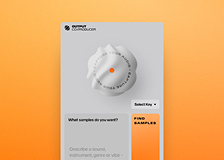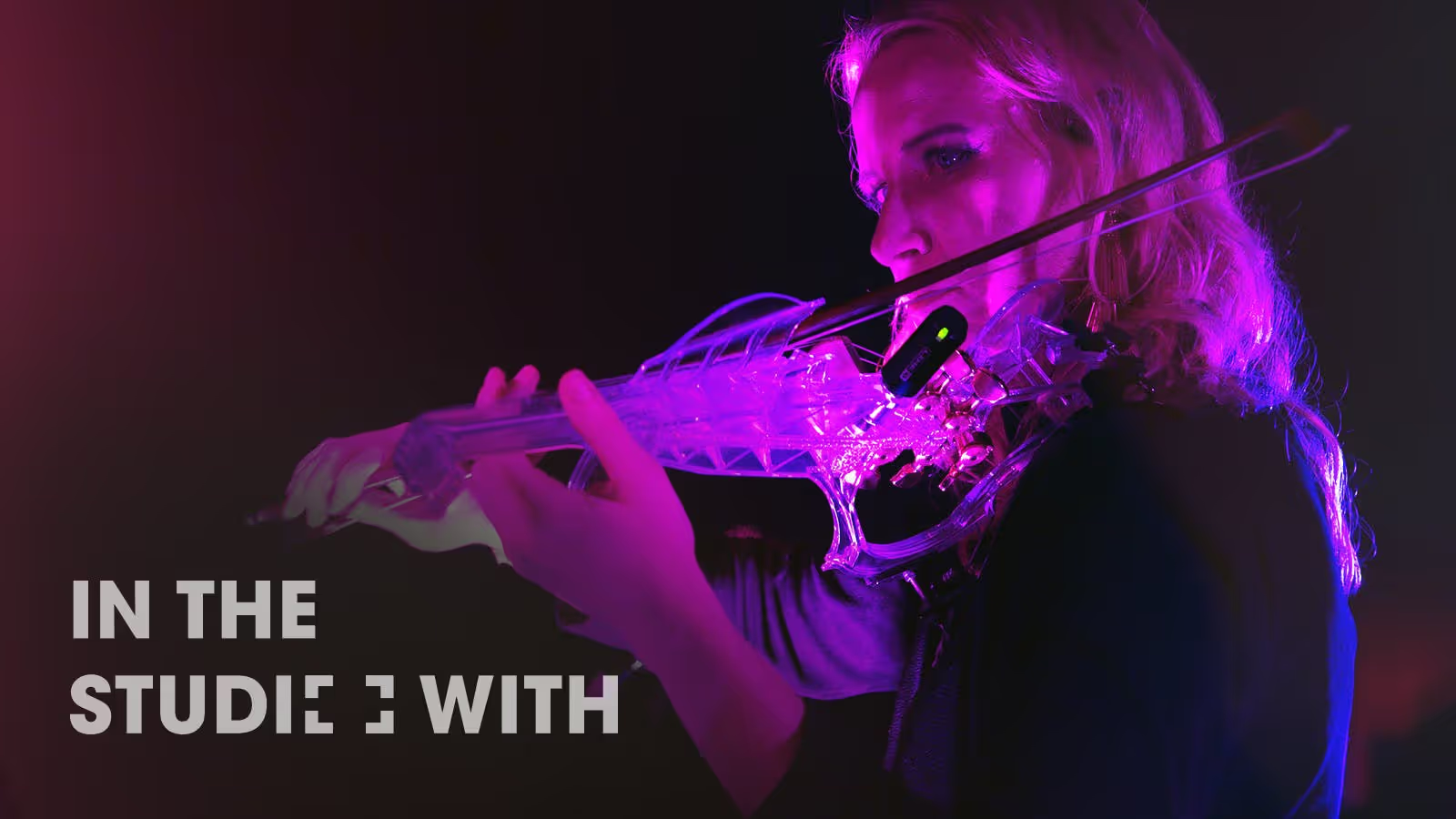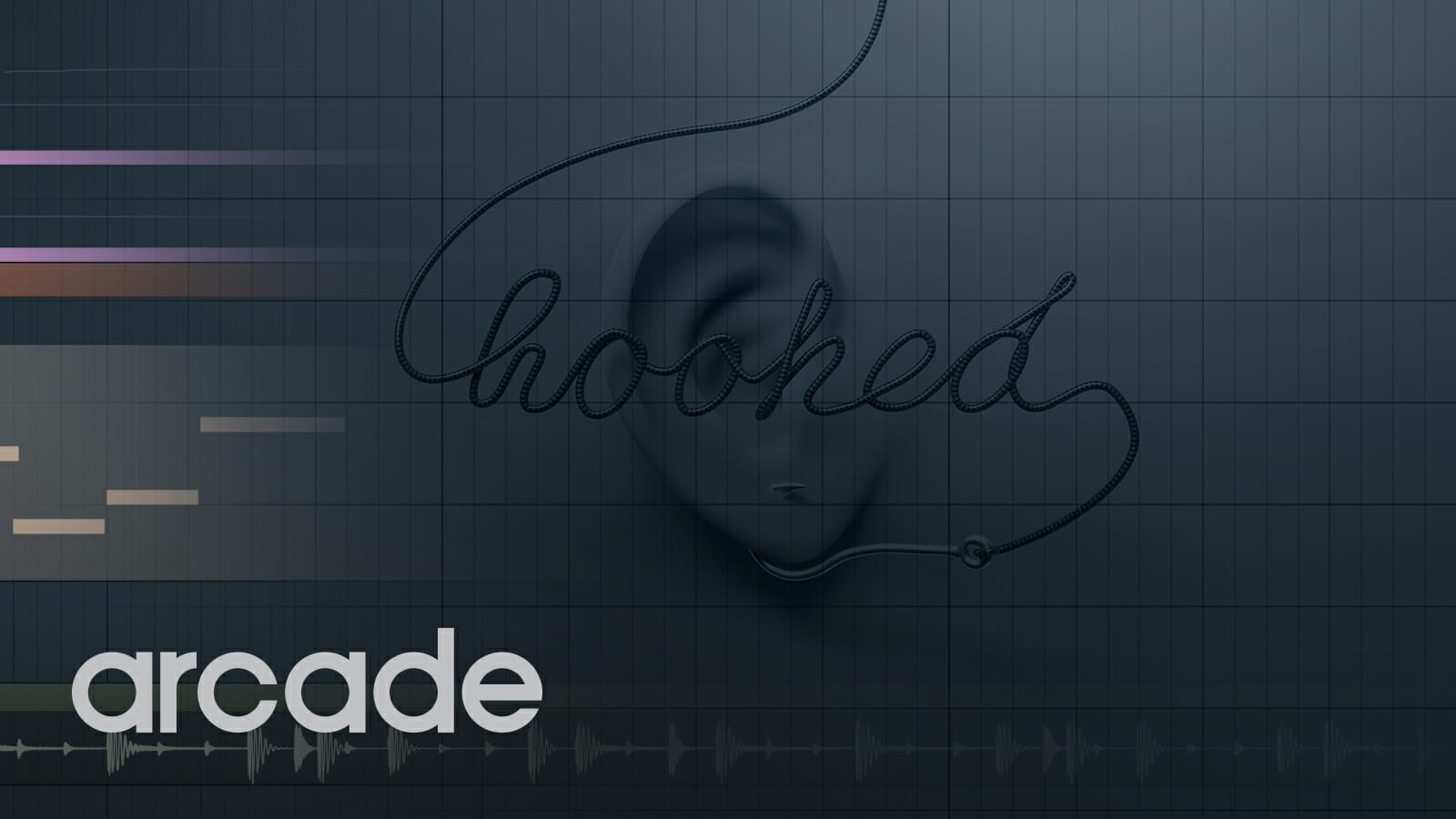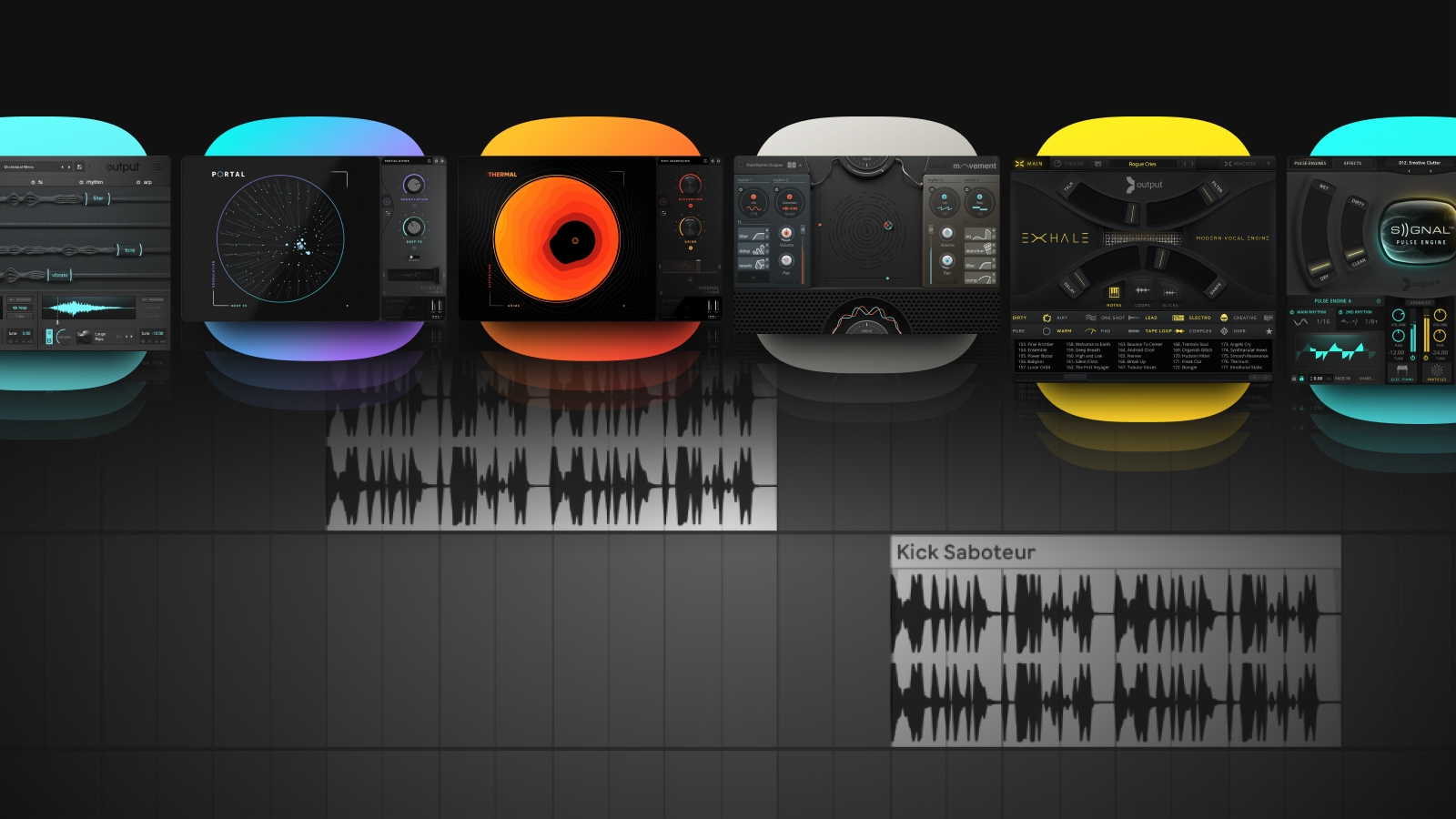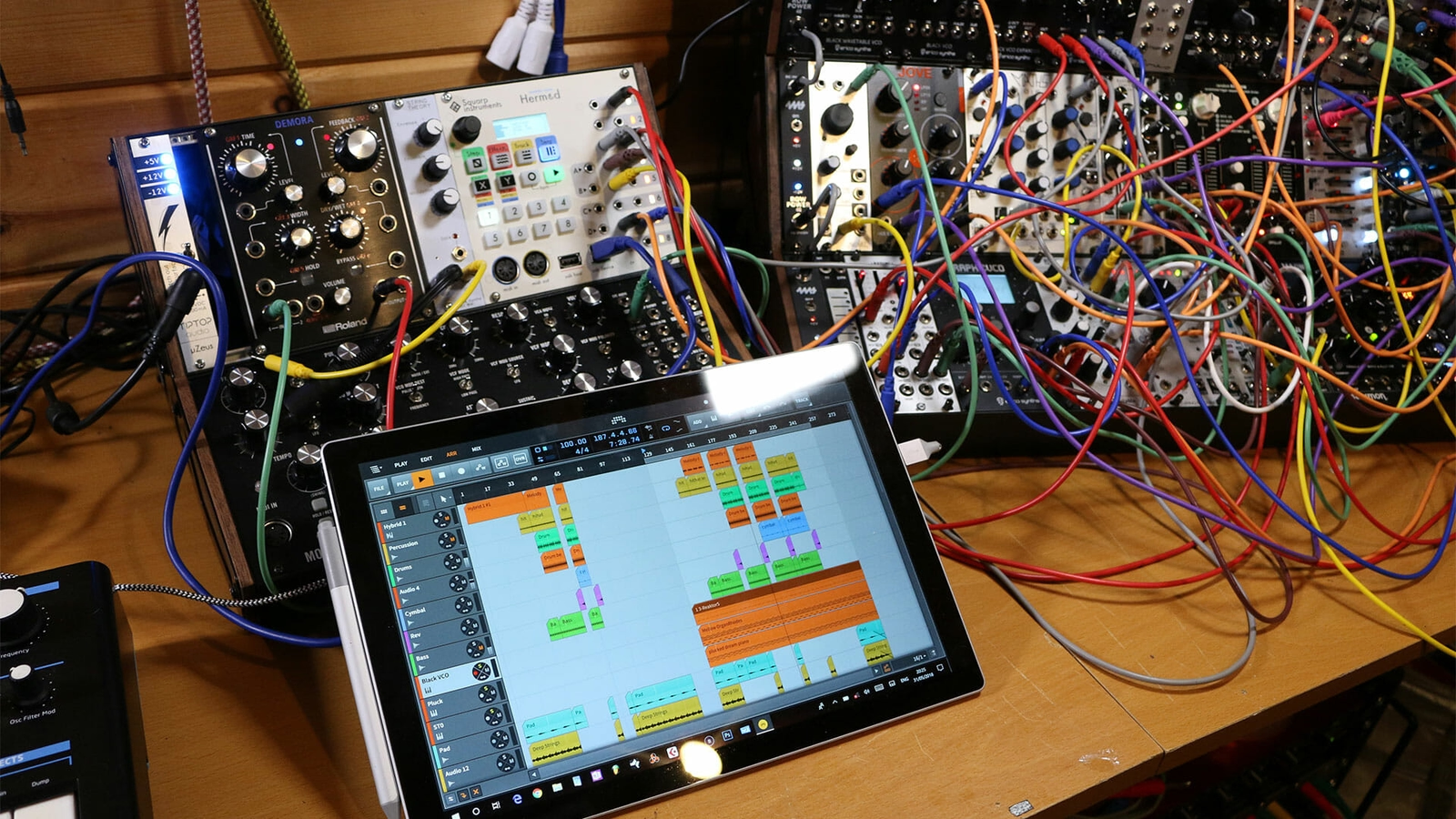
Splice vs Loopcloud: Is This As Good As Sampling Gets?
Splice vs. Loopcloud: We compare the two sample titans to help you find the right fit for your workflow, and check out other contenders.

Get 50% off your first month of Output One. Includes Co-Producer, Arcade, Portal, Movement, Thermal plus all FX expansions.
Try it freeFor music producers, Splice and Loopcloud are the two heavyweights of sample subscription services, both offering vast, royalty-free libraries for any creator. They promise endless sounds, but which one actually fits into a real-world production workflow?
We’re putting them head-to-head, comparing their features, library quality, pricing, and DAW integration. The goal is to cut through the noise and help you figure out which platform will actually help you make better music, faster.
But what if the choice isn't just between two sample browsers? We'll also look at Output's ecosystem, where tools like Arcade and the AI-powered Co-Producer offer a different path—one built on playability and intelligent sound discovery.
A Quick Overview on Splice and Loopcloud
What is Splice?
Splice is a subscription service built around a massive library of royalty-free samples, loops, and presets. Its model stands out with a rent-to-own plan for plugins and a “Create mode” that matches compatible loops to speed up your workflow. Any sound you download is yours to keep, even if you cancel your subscription.
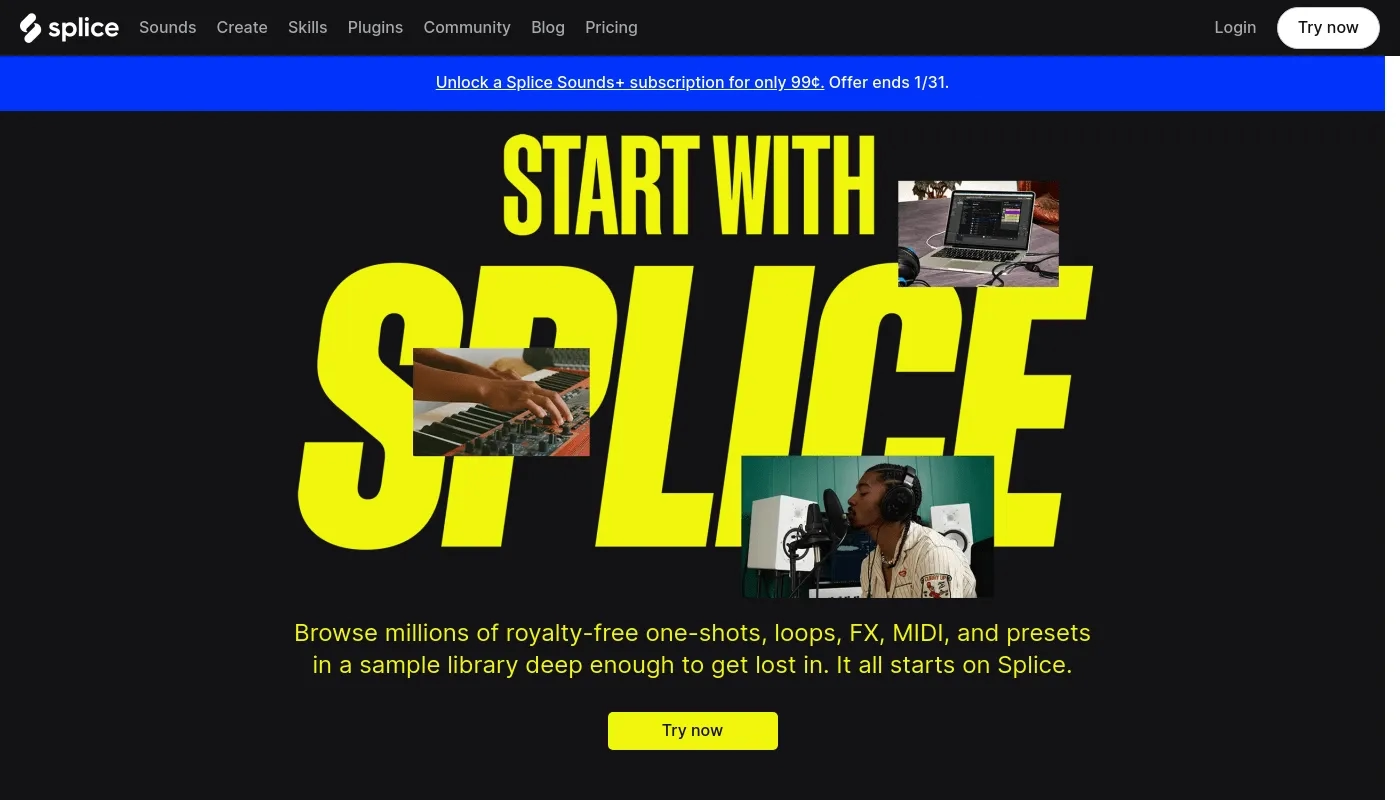
What is Loopcloud?
Loopcloud offers a vast library of samples, but its real power is in the workflow. You can audition and manipulate sounds in sync with your track before committing to a download. It even tackles the chaos of your own sample folders by auto-tagging everything for you.
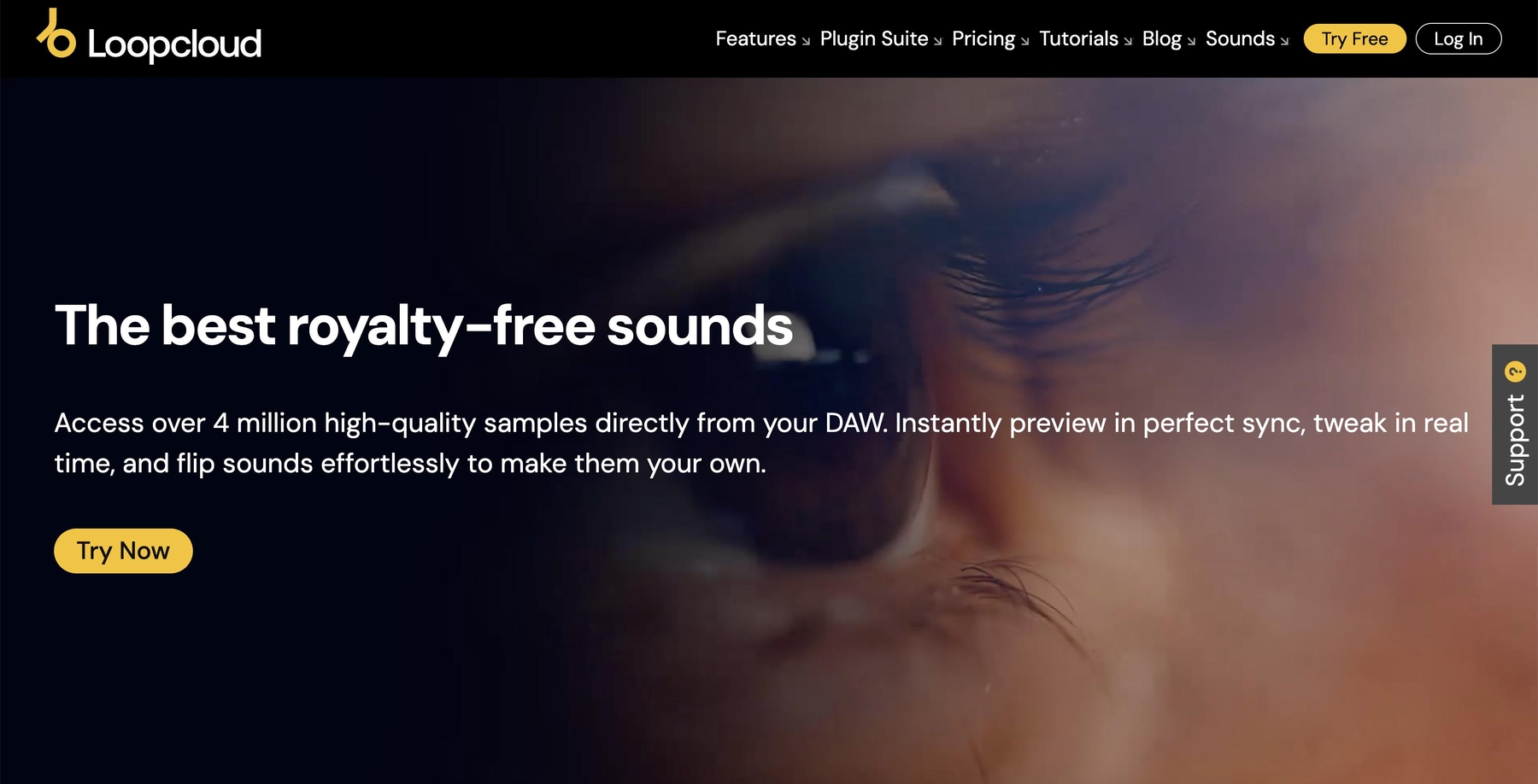
Features of Splice and Loopcloud
Splice Features
Splice's platform is built around a few core functions designed to streamline the sound discovery process.
- A library of royalty-free samples, loops, and presets that are yours to keep forever, even if you cancel your subscription.
- A rent-to-own model for plugins, letting you pay for top VSTs over time instead of all at once.
- A "Create mode" that automatically finds and matches compatible loops from its catalog to help you sketch out ideas quickly.
- A desktop app that syncs with your DAW, allowing you to preview sounds in your track’s key and tempo before you drag them in.
- A mobile app for browsing the library and saving sounds from anywhere, which then sync to your desktop for later use.
Loopcloud Features
Loopcloud's platform centers on deep integration with your DAW, offering a set of tools designed to keep you in the zone.
- A library of over 4 million royalty-free samples, with thousands of new sounds added each week.
- The ability to audition and manipulate any sound from the library directly in your project—in time and in key—before you use credits to download it.
- Real-time sample editing tools that let you apply effects and pitch changes before dragging the audio straight into your DAW.
- An auto-tagging system that organizes not only the Loopcloud library but also all of your personal, locally-stored sample folders.
- A suite of plugins from brands like iZotope, Native Instruments, and Universal Audio is included with an annual subscription.
Why Choose One Over The Other?
- You might lean towards Splice if you want to build your plugin collection affordably through its rent-to-own model. Its "Create mode" also offers a straightforward way to generate song ideas by automatically matching compatible loops for you.
- Loopcloud could be a better fit if your workflow is about in-the-box sound shaping. It lets you audition and process samples in time and key with your project before you even download them, and it organizes your existing sample library.
Output: A Better Alternative to Splice And Loopcloud
While Splice and Loopcloud are powerful tools for digging through sample libraries, we built Output on a different philosophy. Instead of just offering a massive folder of sounds to sift through, our ecosystem is designed to get you playing and creating from the jump. It’s about turning sound discovery into part of the musical process itself, not a separate chore.
What is Output?
At its core, our platform is a connected suite of tools built to keep you in the zone. Here’s what that looks like in practice:
- A playable sample instrument, Arcade, that organizes sounds into interactive kits. Instead of just dragging in a loop, you can perform it on your keyboard, with new content added daily.
- An AI assistant called Co-Producer that listens to your project and suggests fitting sounds from our library, whether you feed it an audio loop or just type what you’re looking for.
- A collection of distinct effects plugins designed for sound manipulation, including the granular texture generator Portal, the multi-stage distortion engine Thermal, and the rhythm-shaping tool Movement.
- A catalog of celebrated Kontakt instruments that have become secret weapons for producers, from the definitive vocal engine Exhale to the reverse-based instrument Rev.
- A fully integrated workflow where our tools talk to each other. Find a sound with Co-Producer, play it in Arcade, and transform it with Portal without ever breaking your stride.
So, why choose this path? If your goal is to simply find a specific snare or hi-hat loop, the other platforms are excellent catalogs. But if you’re looking for a partner in the songwriting process—a set of tools that inspires ideas you didn't know you had—that’s what we’re here for. It’s less about finding sounds and more about shaping them.
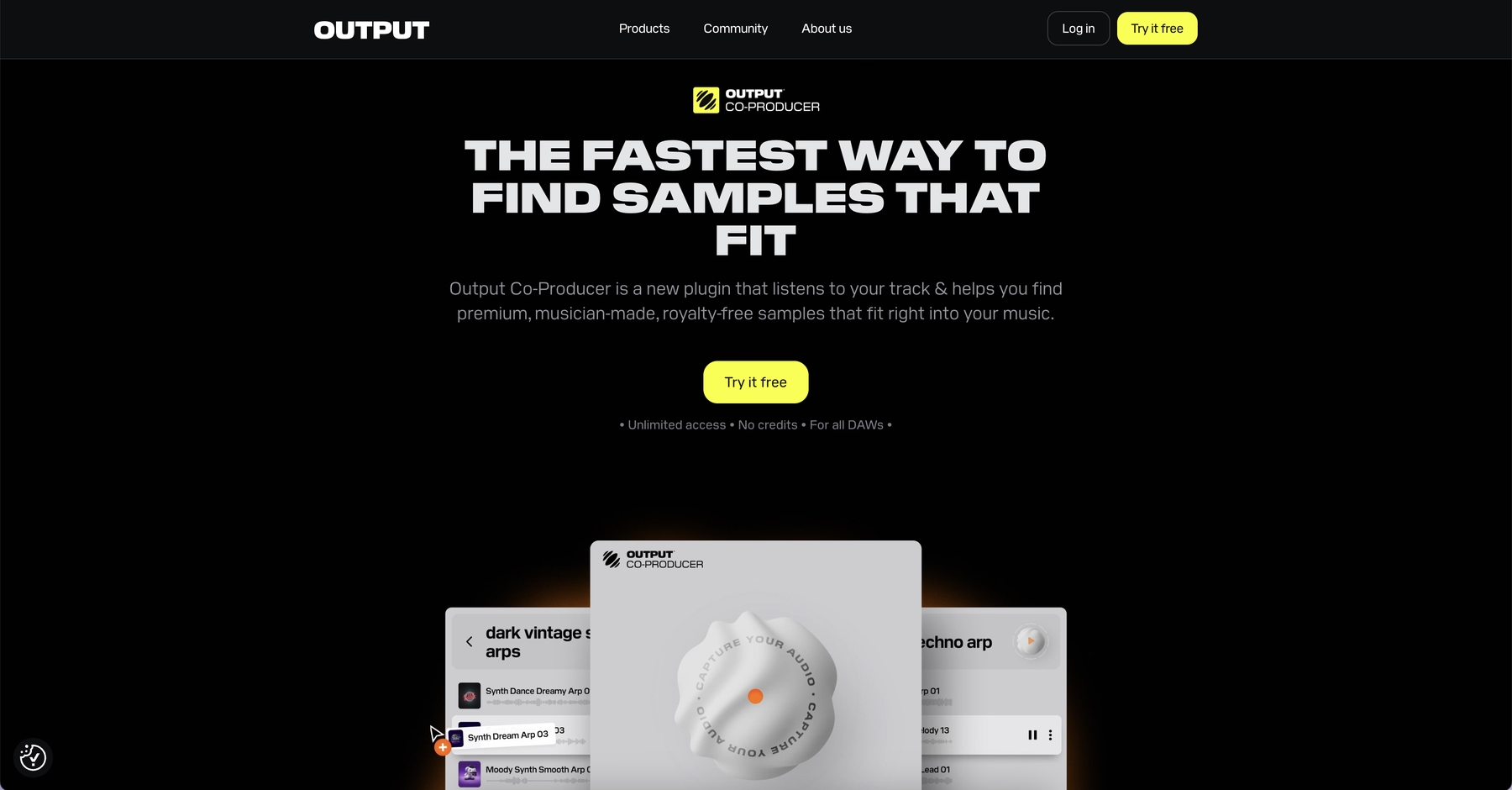
Pricing of Splice vs Loopcloud
Splice Pricing
Splice runs on a straightforward credit system. They offer three main tiers, and the main difference is how many sounds you can grab each month.
The entry-level plan, Sounds+, gets you 100 credits for $12.99 a month. The Creator plan doubles that to 200 credits for $19.99, and for the heavy users, Creator+ offers 500 credits at $39.99 per month. If you're ready to commit, paying annually shaves a bit off the total cost for any of the plans.
It's simple: one credit equals one sample. Unused credits roll over, so you don't lose them if you have a slow month. The big plus here is that any sample you download is yours for good, even if you decide to cancel. Your library is your library.
Loopcloud Pricing
Loopcloud takes a different approach. Instead of a one-to-one credit system, it uses points and tiers. The core idea is that you can audition and manipulate any sound from their library—in time and in key with your track—before you decide to spend points to download it. It’s a "try before you buy" model built right into your DAW.
They offer three plans. The Artist plan starts at $7.99 a month for 100 points. The most popular option, Studio, gives you 300 points for $11.99 a month. For heavy users, the Professional plan offers 600 points for $21.99 a month. Each tier also comes with a different amount of cloud storage for your own sample collection.
If you commit to a yearly plan, the cost drops significantly, and they throw in a bundle of 10 plugins from brands like iZotope and Native Instruments that are yours to keep. There's also a 14-day free trial that gives you a handful of points to see if their workflow fits your process.
Output Pricing
We built our pricing around one simple idea: give you everything you need without the headache. Our Output One subscription bundles our entire software suite—Arcade, Co-Producer, Portal, Thermal, and Movement—for $14.99 a month. Pay for the year, and it's even less. No credits, no points, just all the tools.
If you’re not ready for the full bundle, you can subscribe to Arcade on its own for $12.99 a month or add Co-Producer to your setup for $9.99 a month. For producers who prefer to own their tools outright, all of our FX plugins and Kontakt instruments are also available as one-time purchases.
And because we think the best way to decide is to just use the thing, you can try Arcade completely free. It’s a full-access trial, so you can see how it fits into your workflow before spending a dime.
Splice, Loopcloud, or Output: Which is The Best Sample Library for You?
Choosing between Splice and Loopcloud really comes down to your workflow—both are powerful for finding specific sounds. But if you're looking for a platform that pushes you to play, experiment, and discover ideas you didn't know you had, that's where we come in. Our ecosystem is built to be a partner in the process, turning sound discovery into sound design, and you can try for free to see how it fits your setup.
Happy creating!
Thinking Splice and Loopcloud are the only games in town? We get it. But countless producers have already made the switch to Output and found a workflow that just clicks. It’s time to see why they’re not looking back.
Learn moreGet Output announcements, tips, inspiration, and more sent to your inbox.
